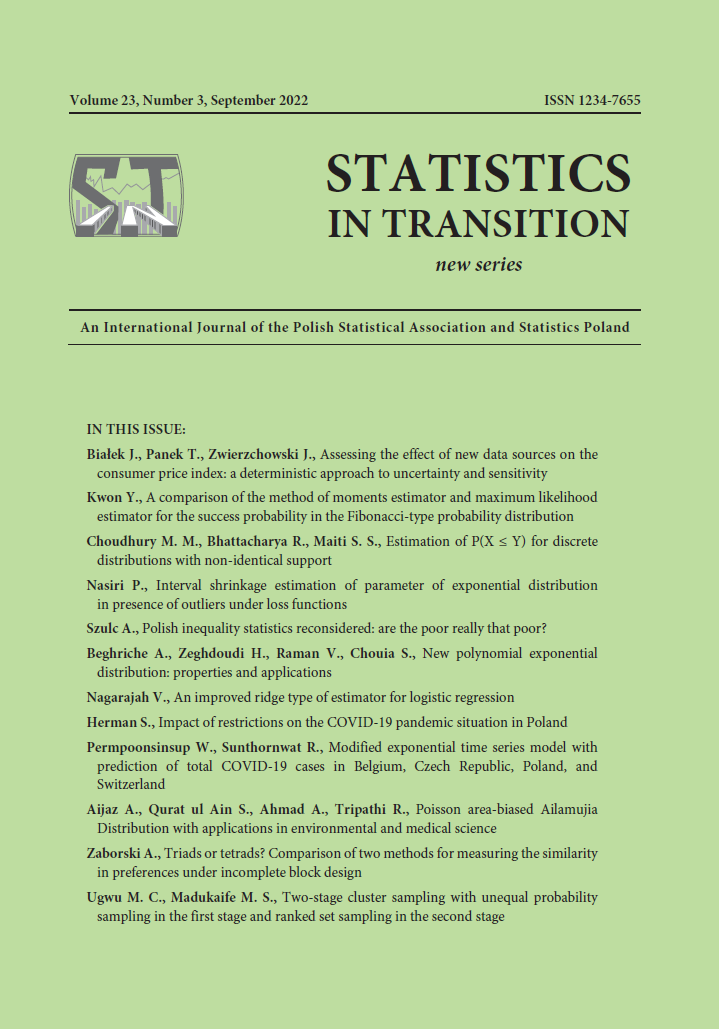Extracting relevant predictors of the severity of mental illnesses from clinical information using regularisation regression models
Extracting relevant predictors of the severity of mental illnesses from clinical information using regularisation regression models
Author(s): Sakshi Kaushik, Alka Sabharwal, Gurprit GroverSubject(s): Economy
Published by: Główny Urząd Statystyczny
Keywords: adaptive LASSO; group LASSO; mental disorder; multicollinearity; random forest imputation; ridge regression; severity of an illness;
Summary/Abstract: Mental disorders are common non-communicable diseases whose occurrence rises atepidemic rates globally. The determination of the severity of a mental illness has important clinical implications and it serves as a prognostic factor for effective intervention planning and management. This paper aims to identify the relevant predictors of the severity ofmental illnesses (measured by psychiatric rating scales) from a wide range of clinicalvariables consisting of information on both laboratory test results and psychiatric factors . The laboratory test results collectively indicate the measurements of 23 components derived from vital signs and blood tests results for the evaluation of the complete blood count. The 8 psychiatric factors known to affect the severity of mental illnesses are considered, viz. the family history, course and onset of an illness, etc. Retrospective data of 78 patients diagnosed with mental and behavioural disorders were collected from the Lady Hardinge Medical College & Smt. S.K, Hospital in New Delhi, India. The observations missing in the data are imputed using the non-parametric random forest algorithm. The multicollinearity is detected based on the variance inflation factor. Owing to the presence of multicollinearity, regularisation techniques such as ridge regression and extensions of the least absolute shrinkage and selection optor (LASSO), viz. adaptive and group LASSO are used for fitting the regression model. Optimal tuning parameter λ is obtained through 13-fold cross-validation. It was observed that the coefficients of the quantitative predictors extracted by the adaptive LASSO and the group of predictors extracted by the group LASSO were comparable to the coefficients obtained through ridge regression.
Journal: Statistics in Transition. New Series
- Issue Year: 23/2022
- Issue No: 2
- Page Range: 129-152
- Page Count: 23
- Language: English

